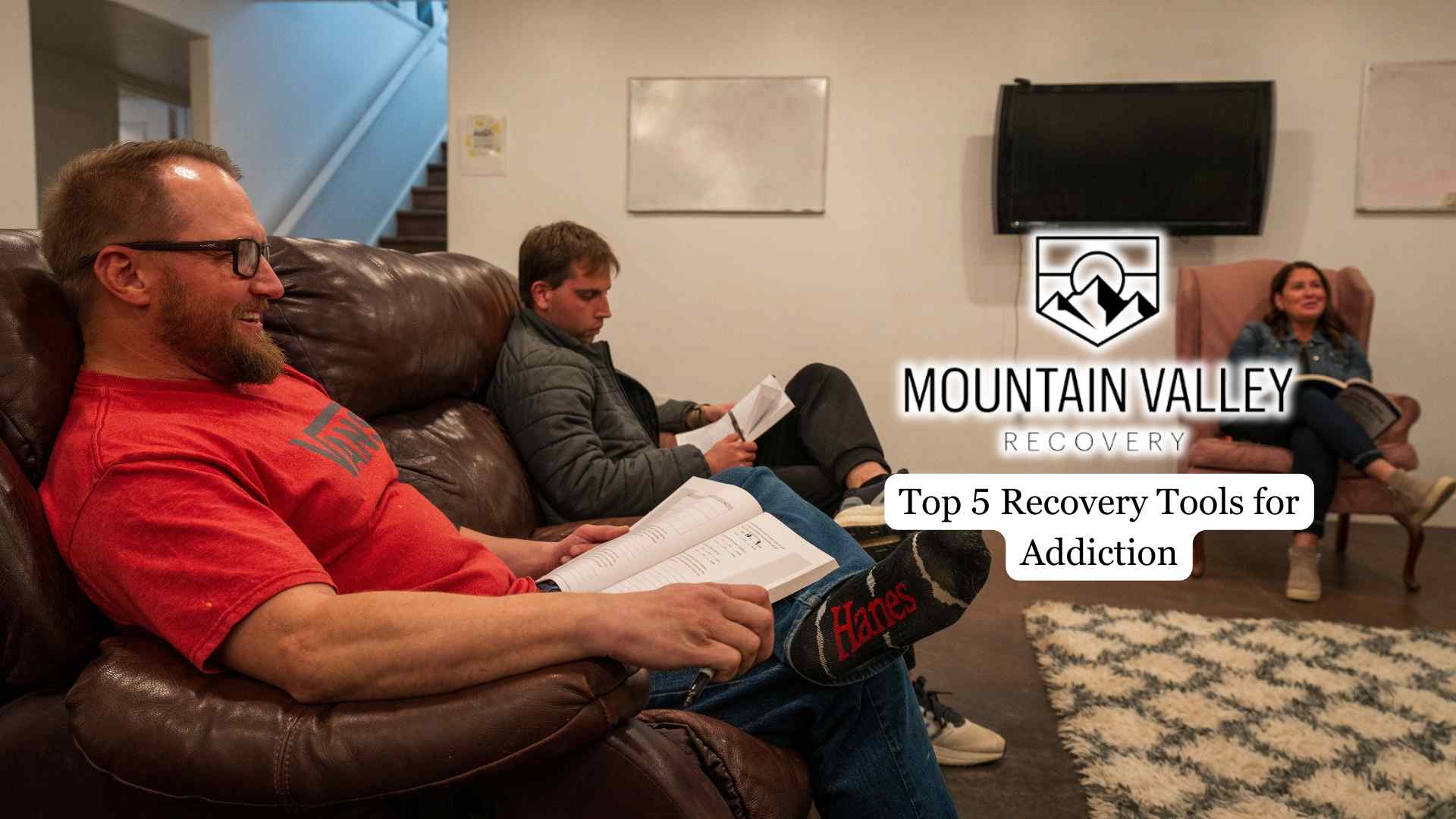Overcoming the grip of substance use requires access to effective recovery tools that foster resilience, build healthy habits, and maintain long-term sobriety. These tools can include therapeutic techniques, support systems, holistic practices, and digital resources, all of which are designed to empower individuals on their path to recovery.
This article will explore various recovery tools that can aid in the healing process, highlighting their importance in addressing both the physical and emotional aspects of addiction.
Therapy and Counseling
Therapy and counseling play a vital role in addiction recovery, offering a safe space for individuals to explore their emotions, thoughts, and behaviors.
During therapy sessions, you’ll work with trained professionals who specialize in addiction treatment. They’ll guide you through various approaches, such as behavioral therapy, which focuses on modifying unhealthy habits and developing coping mechanisms to manage triggers and stress.
Individual therapy provides personalized support tailored to your unique needs, while group therapy connects you with others who share similar experiences. In these group settings, you’ll find emotional support, encouragement, and accountability as you navigate the challenges of recovery together.
Engaging in therapy significantly improves mental health outcomes by addressing the root causes of addiction. Therapists employ evidence-based techniques like Cognitive Behavioral Therapy (CBT) to help you identify and change negative thought patterns that contribute to addictive behaviors.
Throughout the therapeutic process, you’ll gain valuable insights into your emotions and learn effective strategies for managing stress and maintaining sobriety.
If you or someone you know is ready to take the next step in their recovery journey, enroll in our Men’s Only Rehab Program in Utah.
Support Groups
Support groups provide a safe and non-judgmental environment where you can share experiences, challenges, and successes with others who genuinely understand your struggles.
These groups come in various forms, such as 12-Step programs and alternative approaches, catering to diverse needs and preferences. By actively participating and openly sharing, you’ll forge strong connections with fellow members, gaining valuable encouragement and ongoing support that extends beyond meetings.
Engaging in a support group helps combat feelings of isolation, as you witness others’ recovery journeys and draw inspiration from their progress. These groups often facilitate the exchange of practical resources and strategies, empowering you with additional tools to navigate your own path to sobriety effectively.
Embracing the support and collective wisdom offered by these communities can significantly enhance your chances of achieving and maintaining long-term recovery, as you build a network of individuals who are invested in your well-being and success.
Check out what are the advantages of attending Family Anonymous Meetings for both those in recovery and their loved ones.

Healthy Lifestyle Changes
You can support your physical and mental well-being by adopting a balanced diet rich in nutrients, addressing deficiencies caused by substance abuse.
Regular physical activity, such as engaging in aerobic exercises or strength training, releases endorphins that improve mood and reduce cravings, making it an essential part of your recovery journey.
Establishing a consistent sleep routine enhances emotional stability and cognitive function, as quality sleep is vital for effectively managing stress levels.
Incorporating stress management techniques like mindfulness, meditation, or yoga into your daily routine promotes relaxation and helps you cope with triggers associated with addiction.
Holistic Approaches
By engaging in practices like meditation, yoga, and art therapy, you can foster emotional well-being and self-awareness, which are crucial for your recovery journey. These holistic approaches encourage personal growth by helping you develop mindfulness, manage stress, and improve your ability to cope with cravings and triggers.
Incorporating self-care activities into your daily routine can help you reconnect with your inner self and build a balanced lifestyle that supports long-term sobriety. Research has shown that integrating holistic methods into your recovery plan can reduce relapse rates by providing you with constructive tools to manage your emotions and stress.
Find out how holistic approaches can positively impact addiction treatment:
Medication-Assisted Treatment
MAT combines FDA-approved medications with counseling and behavioral therapies to effectively manage withdrawal symptoms and reduce cravings associated with substance use disorders.
By incorporating MAT into your comprehensive treatment plan, you’ll improve your chances of staying in treatment and achieving better recovery outcomes.
Common medications used in MAT, such as Methadone, Buprenorphine, Naltrexone, and Acamprosate, target specific aspects of addiction and withdrawal, helping you maintain stability and focus on your recovery.
However, it’s essential to remember that MAT is most effective when integrated with counseling, behavioral therapies, and support services that address the psychological and social aspects of addiction.
Final Thoughts from Mountain Valley Recovery
At Mountain Valley Recovery, we recognize the distinct obstacles men encounter on their paths to recovery and are dedicated to offering personalized support that considers both personal requirements and group dynamics. Our exclusive men’s rehab program provides a secure and encouraging atmosphere where you can concentrate on healing, personal development, and self-discovery. By employing powerful recovery strategies and connecting with a community of peers who have faced similar challenges, you can establish a robust foundation for a healthier life free from substance abuse.





